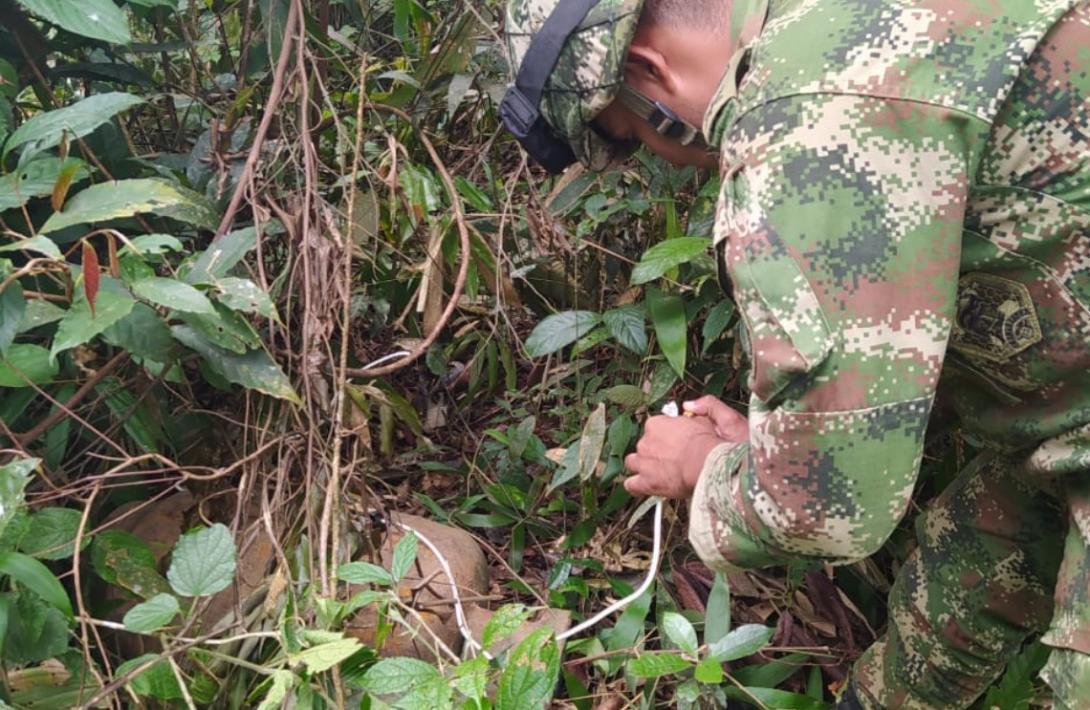With this deadly trap it was intended to attack the troops, putting at risk the lives of the people who supply themselves with this liquid for their survival. That act violates Protocol I of 1977, which considers that water is indispensable to meet the elementary needs of protected persons.
This rule is endorsed in Article 23 of The Hague Regulations, which stipulates that it is prohibited to “use poison or poisoned weapons”.
In development of territorial control operations, troops of the Joint Task Force Omega found an explosive device on the shore of a water tributary in the department of Meta.
The 40-kilo metal cylinder-type container, handcrafted with shrapnel and another unknown explosive, was found by troops of the Rapid Deployment Battalion No.2, in the sector known as Caño Salto, in the municipality of Mesetas.
Mentioned explosive device planted by members of the structure whose main criminal is the individual who is known by the alias of Cotiz or Urías, was found based on the information provided by the Civic Participation Network of the region.
The Attorney General's Office was informed of the event and authorized the destruction of the 40-kilo cylinder by personnel expert in the handling of explosives, implementing all the protocols established for this procedure in a controlled manner.
Article 142 of the Colombian Penal Code criminalizes the use of illicit means and methods of war. In the same way, the use of this type of non-conventional weapons of war violates the Common Third Article of the four Geneva Conventions.
Source: press-Omega Joint Task Force





